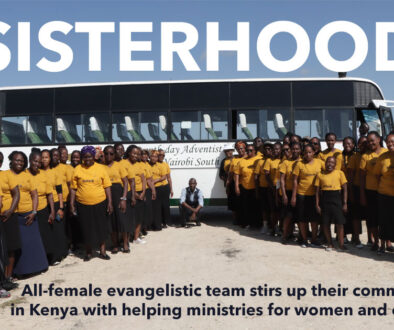Adventist Congressman Re-nominated for Sixth District in Maryland
by AT News Team
Representative Roscoe Bartlett won 44 percent of the vote yesterday against seven challengers in the Republican primary for Maryland’s Sixth District seat in the U.S. House of Representatives. He has served for nearly two decades, re-elected many times with majorities over 60 percent, but his seat is now considered to be one of the ten most vulnerable in the country, according to the political newsletter Roll Call.
He will face the Democratic nominee John Delany in November, a multimillionaire founder of the commercial lending company CapitalSource, Inc. Delany will run on his record in creating jobs in an election where the economy may be the key issue. He received 55 percent of the vote over four other candidates, including the majority leader in the state Senate.
Bartlett is 85 and there was speculation that he would retire, according to the Baltimore Sun until he hired a campaign consultant who previously worked for Mike Huckabee. He is “the consummate political outsider,” the newspaper reported, differing from Republican positions on energy and climate change while joining the Tea Party caucus in Congress and taking positions on issues that some consider “oddball” such as opposition to the use of primates in medical research and pushing for stink bug control. The article referenced his Seventh-day Adventist faith as part of his “outsider” profile.
Because of redistricting by a commission appointed by a Democratic governor, Bartlett now faces unprecedented numbers of voters in the other party. “I’m told it’s the biggest change across the whole country,” he is quoted by the Sun. “Roscoe makes his own way,” commented Herbert Smith, a political science professor at McDaniel College in Westminster, Maryland. “His life saga has been an illustration of that as well.”
A descendant of one of the signers of the Declaration of Independence, Bartlett was born in Kentucky and came to Maryland as a teenager to enroll at what is today Washington Adventist University. He graduated in 1947 with majors in theology and biology. He planned to enter the ministry, but was passed over “because he was considered too young” states Wikipedia. Instead, he entered graduate school and earned a PhD at the University of Maryland, taught there and in the School of Medicine at Loma Linda University, and then took a position as a research scientist at the National Institutes of Health. Later he continued his research as a scientist at the U.S. Navy’s School of Aviation Medicine in Florida, where he invented respiratory devices still used today by pilots and firefighters.
Bartlett first became involved in politics in 1980 when he ran against Senator Charles Mathias in the Republican primary, winning only seven percent of the vote. In 1982 he ran for Congress in the Sixth District, winning the Republican primary and then losing 26 percent to 74 percent against incumbent Congresswoman Beverly Byron. By 1992, the district had been redrawn and Bartlett won the Republican primary and election to the House of Representatives.
In 1995, Bartlett backed Pastor Richard Fredericks who was leading an innovative Adventist congregation in Maryland, signing a letter appealing to General Conference Session delegates. Fredericks later left the denomination and took a number of church members with him.
The only other Adventist member of the U.S. Congress is Sheila Jackson Lee, who has served since 1995 in District 18 in Texas, in the Houston area. She faces no real opposition in the Democratic primary and has always been re-elected with very large majorities. Lee grew up in New York City, graduated from Yale University and got a law degree at the University of Virginia before moving to Houston with her physician husband. She became a municipal judge in the mid-1980s and served as a city council member in Houston from 1990 through 1994. She is a key member of the Congressional Black Caucus.
Despite a number of invitations, the two members of congress have never agreed to appear together at any Adventist institution or event. They represent two different generations and very opposite political approaches. Their shared faith does not mitigate their differences.



